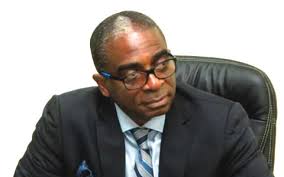The Nigerian Export Promotion Council has said non-oil exports would take over from oil exports to drive the nation’s economy soon.
The council stated that oil revenue was a great opportunity for the growth of non-oil export if well harnessed.
The Executive Director of the council, Segun Awolowo stated this in an interview with the News Agency of Nigeria at the graduation of trainees under the “Zero to Export” programme organised by the council.
Awolowo said the nation’s oil revenue had dwindled from $70 billion to $40 billion between 2014 and 2015, making a loss of $30 billion in 12 months.
He said reports and some economic pointers are already indicating that the oil revenue would still reduce in 2016.
According to him: “The annual import bill of $50 billion is what we have been relying on, but in the real sense, we have lost $30 billion in the space of one year in our oil revenue.
“We need to focus on non-oil exports, especially after the International Trade Centre has stated that Nigeria loses more than $12 billion annually to informal non-oil export trade through our porous borders.
“The top 20 richest countries are exporting countries and this goes to show that no country can build wealth for itself and coming generations without exporting.
“The Zero to Export Programme, one of our initiatives, is one that simply trains selected individuals and company representatives who know nothing about exports.
“We train them in the basics of exporting non-oil products and guide them through starting up.
“The major challenge is not that we lack what to export, we have over 100 globally export-ready commodities and these are even in its crude form.
“Aside funding, a major challenge with non-oil exports is lack of information and capacity.
“Most of our items are still crude, shea butter, cashew, ginger, cables, steel, kernel, agricultural products, and there is still capacity gap in the best global practices to make them export-worthy.”
Awolowo said the council, in 2016, had been investing more on capacity building, packaging and labelling, export processes information, and funding for non-oil exporters, especially those on small and medium scale.
Awolowo urged aspiring exporters to take advantage of the various training programmes offered by the council, and the She-Trades programme offered by the International Trade Centre for women exporters under the council.
He lauded Fidelity Bank Limited for being at the forefront of sponsoring and providing capacity building programmes and special funds for non-oil exporters.
Femi Awe, Co-coordinator of the programme, told NAN that the trainees were not only trained for capacity but were merged into cooperatives groups to provide easier access to funding from financial institutions.
Trending
- CSO faults US Mission’s position on Edo governorship poll
- Abia governor condemns attack on Chinese miners
- APC seeks security agencies’ intervention in Osun LG crisis
- Assassination allegation: Group gives Akpoti-Uduaghan seven days to produce evidence
- ACF to FG: Act now on Plateau killings
- AFDEIC 2025: Conference to focus on Africa’s $180bn digital economy, Artificial intelligence
- Kano Eid-el-fitr Killing: Police withdraw invitation letter to Emir Sanusi
- PDP, Ighodalo insist on challenging tribunal decision after studying judgment CTC


